
Welcome to the 12 Days of Holiday Reading and Listening, Pender’s recommended resource list for the holidays. From economics, neuroscience to history, our portfolio managers recommend books, podcasts, and tv shows that helped them build resilience in 2022. New resources will be revealed each day from December 1 to December 12, 2022.
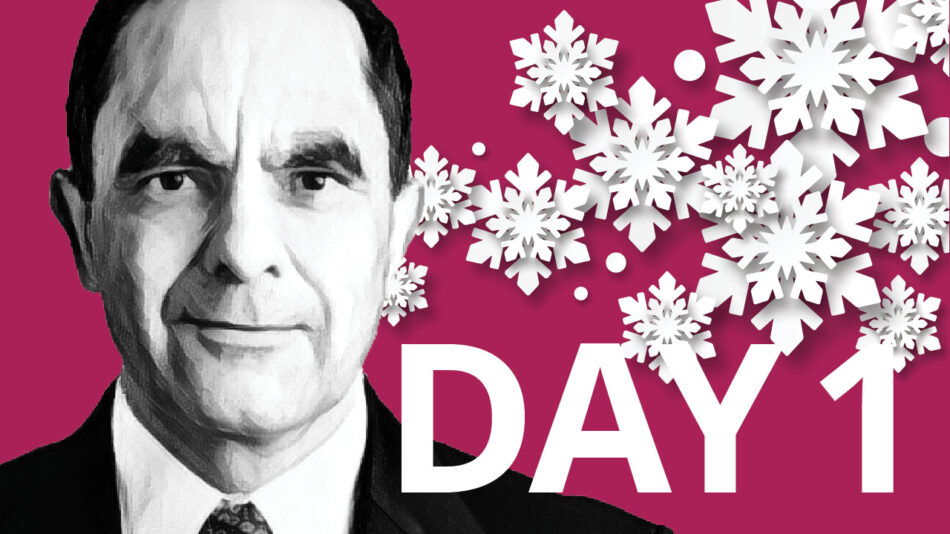 What book made you a bit more resilient during this challenging year?
What book made you a bit more resilient during this challenging year?
The book is about the origins and development of Tencent and its business empire. The book tracks the growth of Tencent and its various businesses from its origins in early 2000. It is an account of the cutthroat competition amongst Chinese internet companies and the quick response needed to stay relevant and thrive in a market that has been a tough nut to crack for several international players.
What’s the one takeaway you’d like to share about being more resilient during challenging times?
Tencent has shown resilience by thriving in the highly competitive Chinese media and entertainment industry through strategic investments in emerging businesses and by being highly adaptive. It has emerged victorious from several business battles to become the world’s leading gaming company spanning multiple genres and platforms as well as the leading mobile app with over 1 billion users.
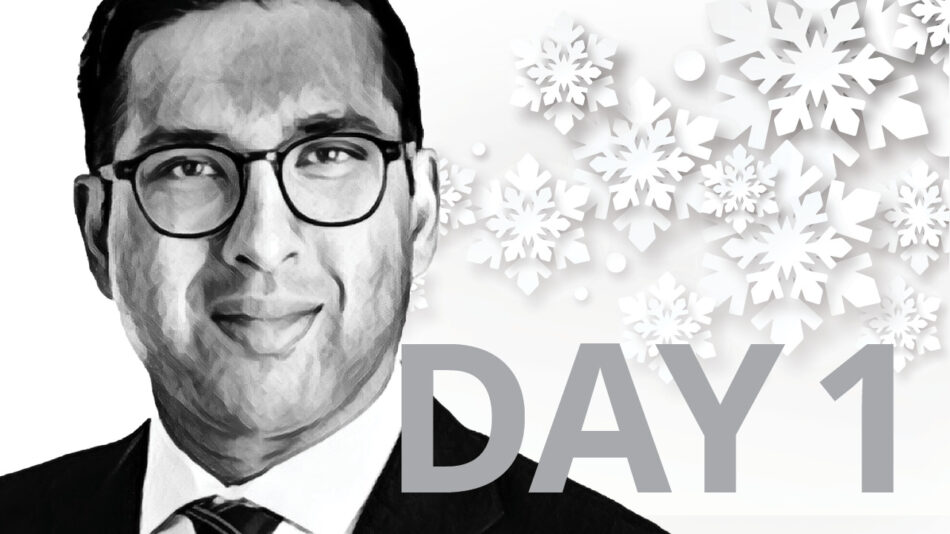 Describe how it helped you.
Describe how it helped you.
Matt Levine’s free newsletter is one of my must-reads. I always look forward to seeing it show up in my inbox. I’ve followed Levine’s writing since his time as editor and writer of Dealbreaker. He has a highly entertaining approach to chronicling stories in the finance and business sector.
Through much of the year, he expertly led readers through the entire Elon Musk/Twitter acquisition saga, leveraging his former background as an investment banker and M&A lawyer to skillfully navigate the complexities of Definitive Merger Agreements, Material Adverse Effect (MAE) clauses and Leverage Buyouts.
Whether it’s discussing the latest corporate insider trading scandal, the nuances of market liquidity or tackling the latest meme stock craze, Levine has an amazing ability to write humorously, with wit and punch while being highly informative.
His 40,000-word article on cryptocurrencies, “The Crypto Story” for Bloomberg Businessweek was the only article in the issue, and only the second time in the publication’s history of having a single story.
What’s the one takeaway you’d like to share with our readers about being more resilient during challenging times?
In the same way that Jon Stewart was able to transform The Daily Show into a source for relevant and timely US political commentary and information for its viewers, Levine’s column takes business news stories and shines a light on them, highlighting the issues, oddities and absurdities of today’s financial sector.
Emily Wheeler, Associate Portfolio Manager, recommends:
A Short History of Financial Euphoria by John Kenneth Galbraith
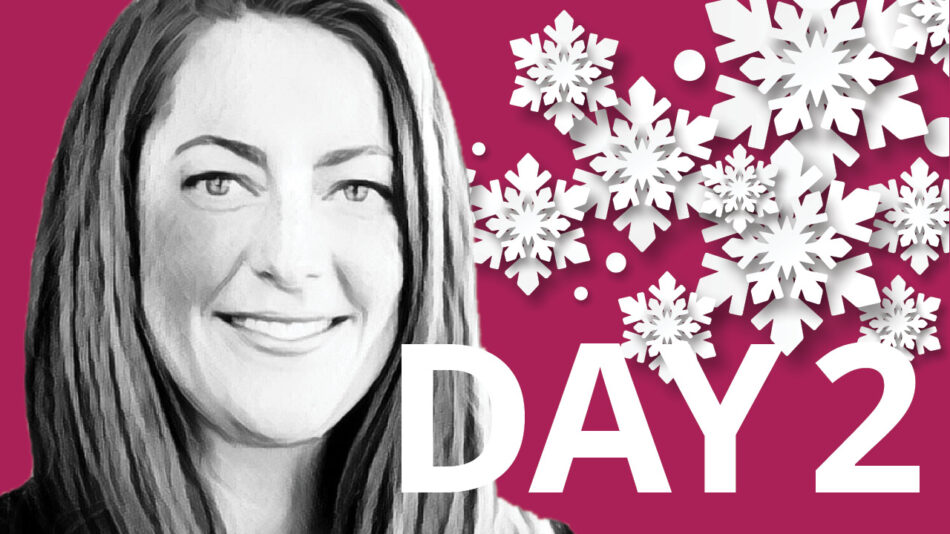 Describe how it helped you.
Describe how it helped you.
Galbraith outlines how financial memory of key speculative periods is brief, how these types of periods are characterized by the thought that there is a new and profitable investment opportunity and how leverage is generally involved. The book begins with the first major speculative bubble, which occurred after tulip bulbs arrived in Europe. By the mid-1630s, a speculative bubble had formed in what is one of the most unusual instruments to be subject to significant speculation. By 1636, the price of some bulbs had risen to approximately $25k – $50k in today’s dollars. This speculation was followed by a rush to sell with the collapse of tulip prices ultimately leading to a significant economic downturn in the Netherlands. Galbraith also covers the speculation in US railroads in the late 1800s, the events leading up to the stock market crash in 1929, and the period of excess through the 1980s, which led to the failure of Drexel Burnham.
What’s the one takeaway you’d like to share with our readers about being more resilient during challenging times?
Galbraith discusses how all of these periods have common features – signals that can be used to aid understanding so that when they recur, they may lead to more rational behaviour as opposed to excessive enthusiasm. “A Short History of Financial Euphoria” argues that when excessive optimism pervades an investment opportunity or markets, “it is time for caution.” This book may offer enduring advice to guard against the downside of uncertain times which invariably arise.
Felix Narhi, CIO & Portfolio Manager, recommends:
David Gallan’s TedX Talk transcript, “Who Knows What’s Good or Bad?
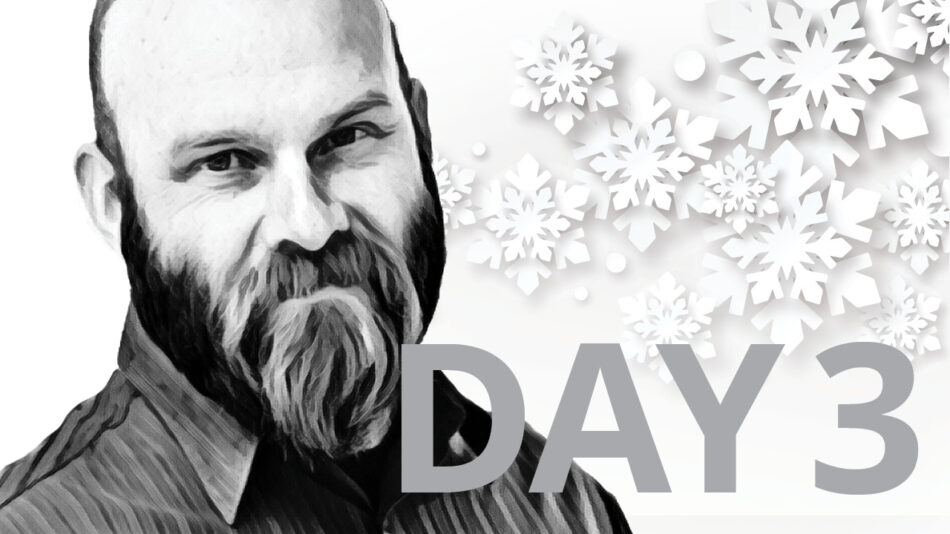 Describe how it helped you.
Describe how it helped you.
This is a 2,000-year-old story. It goes like this: A farmer loses his horse, which is his most valuable possession, but the horse later returns, bringing a dozen new horses with it. Then, his son breaks his leg while taming one of the new horses, which saves the son from being conscripted into the army. The farmer’s neighbours feel pity, then envy, with every turn of his fortune. But not the farmer. He is wise enough to know not to get emotionally caught up because nothing is permanent. As he says after each turn of events: “Who knows what’s good or bad?”
What’s a takeaway you’d like to share about being more resilient during challenging times?
In the modern world, we use the good-or-bad dichotomy to categorize nearly everything in our lives – events like the pandemic, people we meet, food we eat, stocks we buy or sell and even world history. But the lesson here is there is no such thing as good or bad. It is a false distinction that only causes psychological pain. All things are fleeting. Good things are constantly being born out of the seemingly bad, and vice versa. Often, it seems, it’s just a matter of time until an event or decision from one category leads directly to one in the other.
This real lesson of “Who Knows What’s Good or Bad” is how to integrate it as a personal philosophy. I’ve found reflecting on this parable has helped me build resilience against life’s challenges. Any story that survives thousands of years is likely to contain timeless wisdom!
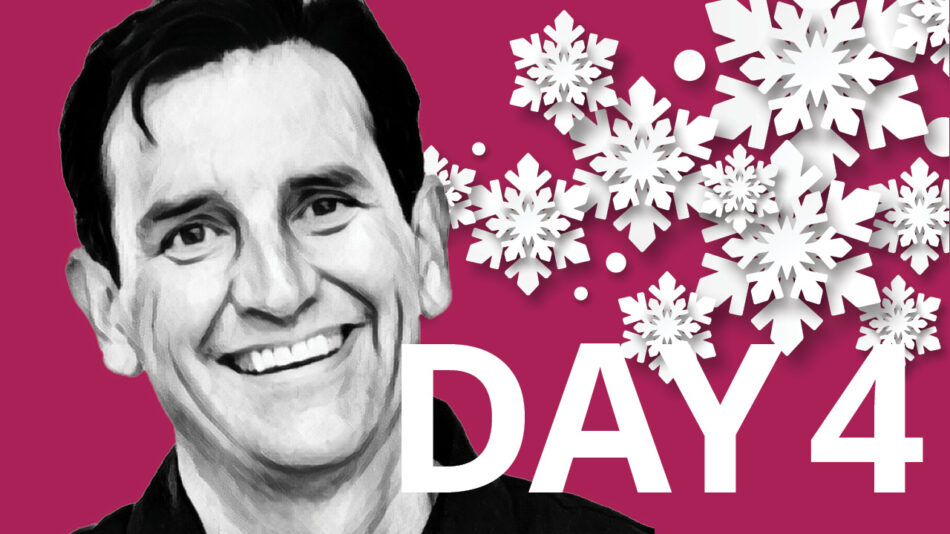 I found the depth of examples and the thoroughness of Darwin’s thinking much more engaging than I had expected, leading me to bore friends and family members with fascinating tidbits throughout the fall of 2022. I enjoyed thinking about changes in various attributes that Darwin shows have helped some species to adapt favourably in adverse environments. For instance, the gradual development of a longer neck in the giraffe helped an African plant grazer access food unavailable to its competitors, promoting resilience in times of drought or heightened competition for lower elevation plants. And that got me thinking about subtle changes we can make to achieve higher returns in what has been a hostile market environment in 2022.
I found the depth of examples and the thoroughness of Darwin’s thinking much more engaging than I had expected, leading me to bore friends and family members with fascinating tidbits throughout the fall of 2022. I enjoyed thinking about changes in various attributes that Darwin shows have helped some species to adapt favourably in adverse environments. For instance, the gradual development of a longer neck in the giraffe helped an African plant grazer access food unavailable to its competitors, promoting resilience in times of drought or heightened competition for lower elevation plants. And that got me thinking about subtle changes we can make to achieve higher returns in what has been a hostile market environment in 2022.
Describe how it helped you.
The heart of Darwin’s theories revolves around an understanding of the intense levels of competition that exist for all species in propagating their kind. As an analyst of businesses, that framework is readily translatable to the struggle of companies and industries. I found it helpful in terms of pointing me towards looking at subtle differences among corporate competitors as drivers of “natural selection” within an industry.
What’s the one takeaway you’d like to share about being more resilient during challenging times?
Darwin encourages his readers to study differences or variation. To apply this to individuals seeking to thrive in challenging times, I would say that looking within oneself for ways in which we differ from others may lead to understanding specific advantages. If we can find specific advantages that help us serve others in a positively differentiated way, then we are well on our way to surviving difficult business environments.
Justin Jacobsen, Portfolio Manager, recommends:
The Call to Courage – Netflix special on the professor and author Brené Brown
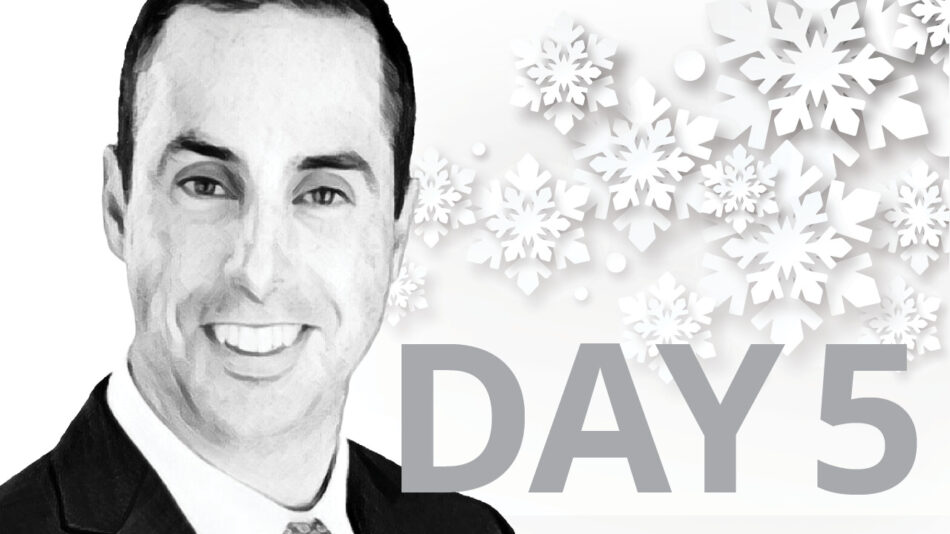 Describe how it helped you.
Describe how it helped you.
Brown does a masterful job of weaving humour and life experience to expose mental traps that can hold us back in our personal and professional lives. The core of the lecture is the connection between courage and vulnerability. She argues convincingly that no act of true courage is possible without being vulnerable. Taking chances, “playing big” and failure are essential for personal and professional growth. People are faced with choices in life, to either be on the sidelines or to be in the arena. It is important for those taking chances and putting themselves out there to not get caught up in criticism from those who are playing small and not taking chances in their own life.
I’ve found myself in situations where I was encouraged to play small, to not take chances where I was in an environment with many people who chose comfort over courage, and found it to be suffocating. I suspect that many people who work in large, bureaucratic organizations have had similar experiences. It’s just about impossible to be happy if you’re not being fulfilled in your professional life. Brown argues that fitting in is the opposite of belonging, and true belonging requires you to be yourself and not change who you are.
What’s the one takeaway you’d like to share with our readers about being more resilient during challenging times?
Brown is great at identifying common situations and mental narratives where we can be our own worst enemies. One particularly compelling point she makes is how we push back against joy and happiness, how we are terrified to experience happiness or joy because of fear that if we do that, something will come up and take it all away. She explains her own irrational response to joy in her professional life.
She wraps up with a touching story about what winning can look like, how important it is to set your own bar for success, and not to get wrapped up in other people’s expectations.
It’s an entertaining 76-minute video that I found spoke to a lot of usually unsaid truths and was helpful in aligning a more productive and positive mental outlook.
Lukasz Darowski, recommends:
Wired for Music: A Search for Health and Joy Through the Science of Sound by Adriana Barton, published by Greystone Books, 2022
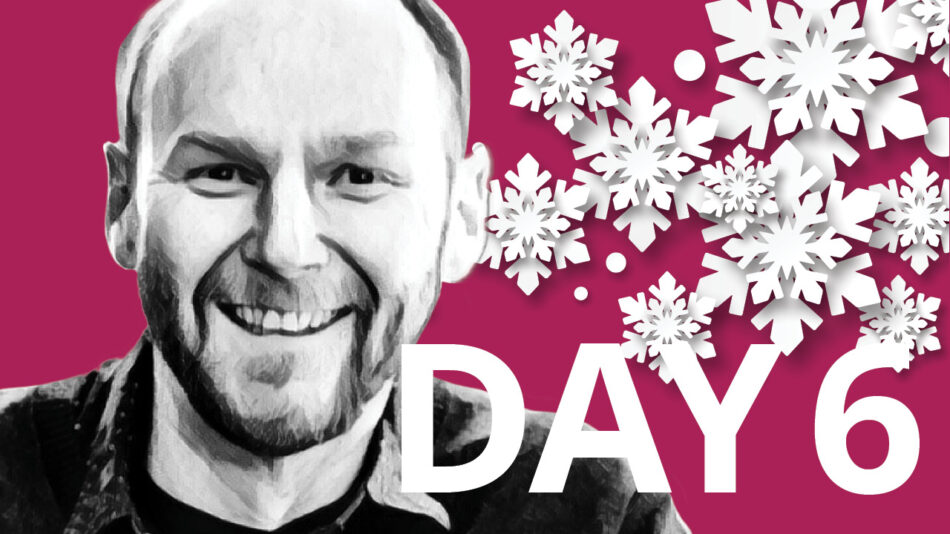 Describe how it helped you.
Describe how it helped you.
The past year has been marked with events that were out of my control. One thing that helped me be more resilient was my love of music. I found that even if I could not control the events happening around me, I could control my environment and in effect, my perception of these events. Music has always been a big part of my life. In junior high, I was very involved in the music program where I played the tenor saxophone, and in university I had a show on the campus radio station. Over the last year, I became more aware of how different genres of music helped me focus, stay calm, or become more engaged. In 2023, I want to learn more about the connection between music and the way we think and behave.
What’s the one takeaway you’d like to share with our readers about being more resilient during challenging times?
“Wired for Music” stood out to me, because it is written in an engaging style, and I really like how the author mixes personal experience with scientific research. From a book that I recommended in the past “Atomic Habits” I learned about the “aggregate power of marginal gains”, where several small improvements can have a profound impact on performance. I’m excited to learn about how I can leverage my love of music to improve my performance whether it be physical, mental, or professional.
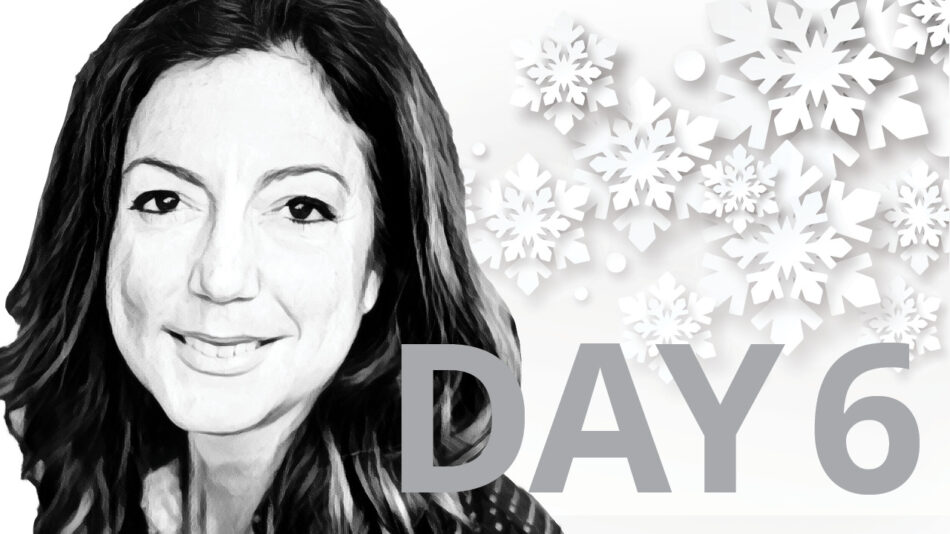 Describe how it helped you.
Describe how it helped you.
Maybe yet another business strategy book…but different. A homegrown (Vancouver) talent, Shannon Byrne Susko wrote this book, in addition to two others, based on her own founder/CEO experiences, plus her extensive research (four books per week for 24 months) on other great business strategy books. The author has short-cut the work for us and synthesized the research into one system and framework that CEOs “can implement to create enduring, repeatable growth with ease, speed and confidence.”
What’s the one takeaway you’d like to share with our readers about being more resilient during challenging times?
Every organization, whether it’s your own business, division, or portfolio investment, needs to have a clear and concise strategy that can be simply articulated to customers and teams alike. There has to be an execution plan with goals to achieve and measure against. During these challenging times, CEOs more than ever need to do the hard work to create and adapt their strategies to set their organizations up for maximum success.
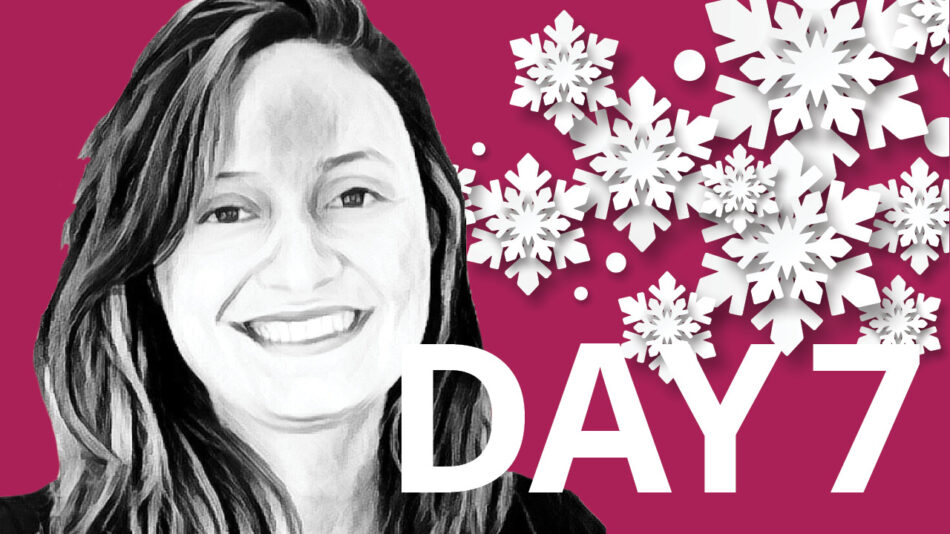 Describe how it helped you.
Describe how it helped you.
The notion that human beings are self-interested and rational decision makers has been at the core of economic theory and models for over a century. It’s not until recently that behavioural economists started challenging the rationality paradigm. In this book, the Nobel-winning author Richard Thaler chronicles this challenge. He argues that humans not only make irrational decisions, but they also do so in a systematic way. That, by economists’ standards, is “misbehaving”.
The book is a combination of personal memoir and intellectual discourse. It is about the way actual people behave as opposed to how traditional economists think they behave. Our biases impact decision-making across a wide range of applications and activities, from investing and financial planning to drafting NFL players and wearing an ill-fitting shoe.
What’s the one takeaway you’d like to share with our readers about being more resilient during challenging times?
Most of the biases and concepts illustrated in the book are based on the author’s personal and professional experiences. We have always known humans behave more like Homer Simpson than Spock, but it took Thaler and other behavioral economists to study how we can overcome these systematic biases. Throughout the book, the author offers practical, usable tips to the reader on how to make better decisions. Thaler delivers an extraordinarily learning-rich, funny journey through the evolution of behavioural economics. If you are looking to dive into cognitive biases without a degree in psychology or economics, “Misbehaving” is a great choice.
Parul Garg, Associate Portfolio Manager, recommends
Super Cooperators: Altruism, Evolution, and Why We Need Each Other to Succeed by Martin Nowak and Roger Highfield
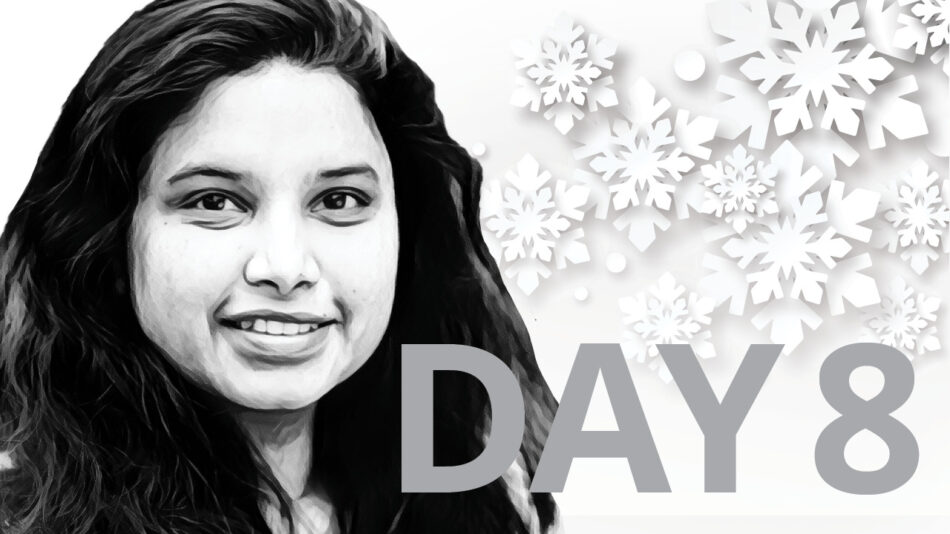 Describe how it helped you.
Describe how it helped you.
Some books are difficult to put down and Super Cooperators is among them. The authors used a mathematical approach to explain subjective behavior such as cooperation. We’re all familiar with Darwin’s concept of “survival of the fittest gene” and how competition is a byproduct of it. Nowak, a professor of mathematical biology at Harvard University, takes a different approach to the theory of evolution by focusing on real-world examples that illustrate how cooperation is a major factor along with mutations and selection.
The first section of the book the authors employ game theory to help readers understand the interaction between evolution and cooperation. They discuss how we can use five mechanisms (direct and indirect reciprocity, spatial games, group and kin selection) to solve the game theory. In the final section, the authors demonstrate how humans are the “super cooperators” among species because we use all five mechanisms to solve social dilemmas, such as the evolution of language.
What’s the one takeaway you’d like to share with our readers about being more resilient during challenging times?
At a time when news headlines are dominated by war and political conflicts, it is comforting to know that humans can do better by supporting one another rather than competing. The world evolved from a single cell to gene to universe through the power of cooperation. This is an intriguing book that might require some time to absorb, but it’s worth it! You can also find lectures on the topic on YouTube.
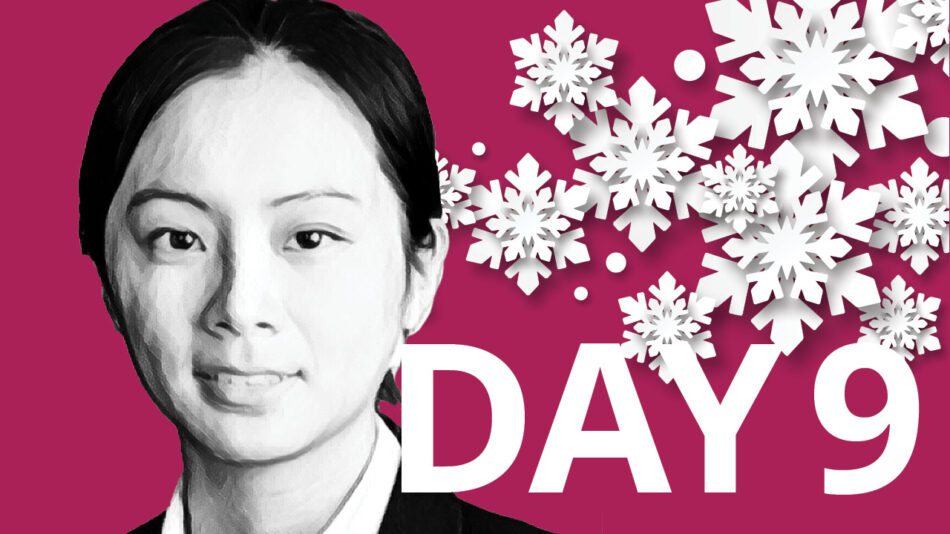 Describe how it helped you.
Describe how it helped you.
This documentary is not focused on Warren Buffet’s investment philosophy. If you would like to learn more about that piece, you can probably turn to those shareholder letters of Berkshire Hathaway. Instead, the documentary takes you on a journey to know the important people in Warren’s life—his parents, his wife, his children, his mentor, and his friends. They helped make him a whole person. I initially watched this documentary last year when the pandemic still had many tail effects, which disturbed my life in many ways. Seeing how Warren has been persistent and perseverant in his lifelong interest with the support from those important people around him is such a comfort.
What’s the one takeaway you’d like to share with our readers about being more resilient during challenging times?
Stay focused on your passions and interests. You will be surprised to see how well things turn out eventually. Most importantly, be grateful to those people that have a mental connection with you and support you. Even if sometimes they cannot be with you for long, they help you become a finer person.
Sharon Wang, Senior Equity Analyst recommends:
The Daily Stoic: 366 Meditations on Wisdom, Perseverance, and the Art of Living by Ryan Holiday and Stephen Haselman
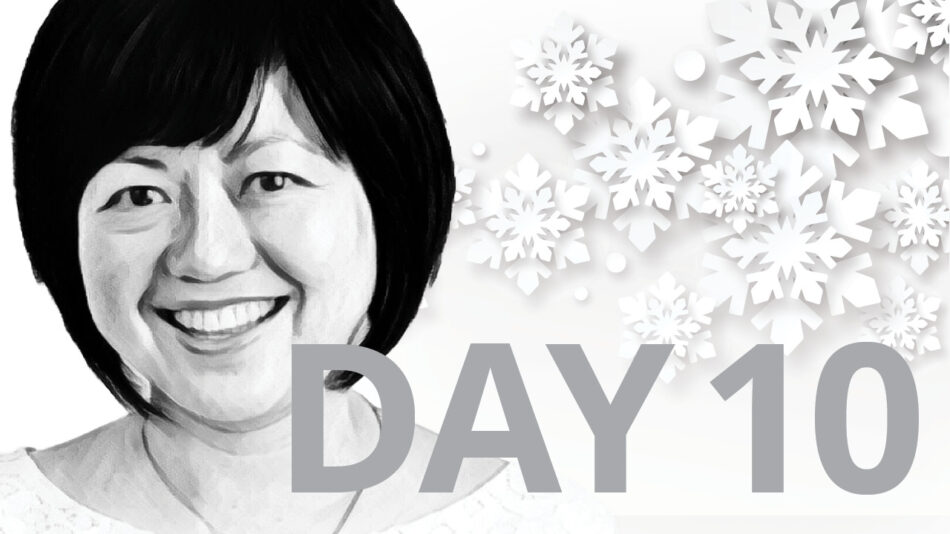 Describe how it helped you.
Describe how it helped you.
There are daily Stoic lessons with quotations from renowned philosophers followed by modern reflections from the authors. It provides precious advice to those who seek a meaningful and happy life. Reading this book helped me clear my mind and focus on the most important things. Life is not getting easier anytime soon. There are always going to be uncertainties and challenges ahead. It is essential for us to build resilience and play hard well. Stoicism is an ancient philosophy and sometimes can be difficult to understand if you read from the original writings. Luckily, The Daily Stoic book is easy to read and functions as an effective daily practice guide, especially for people who are new to Stoicism, to not only understand the philosophy, but also apply it to modern life.
What’s one takeaway from the book that helped you?
There are many takeaways from the book, such as understanding what we control and what we don’t control. This drastically reduces the things we need to think about and this greater simplicity leads to clarity. I trust you will have your own interpretations after you read the book and it’s going to make a difference in your life.
Tracy Tidy, Equity Analyst, recommends:
Reinvention: Changing Your Life, Your Career, Your Future, by Arlene Dickinson is published by HarperCollins Publishers Ltd. All rights reserved.
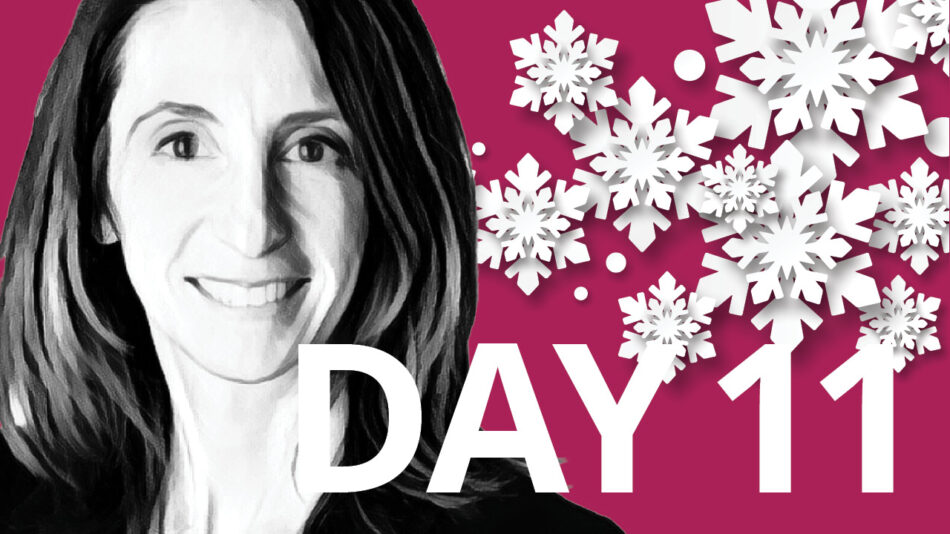 Describe how it helped you.
Describe how it helped you.
The past few years have been very challenging for many businesses. For some, the first phase of Covid was a great opportunity to raise capital, but this was quickly followed by a period where access to capital completely dried up and now the same businesses that were once flourishing found themselves struggling to try and pivot and find their core purpose. During this time, I stumbled upon Arlene Dickinson – first on Dragon’s Den, and then I came across the books she has written. I found Arlene’s third book, Reinvention, very timely as she shares her own personal journey of how she successfully transformed her own life. The tools she gives can be applied to anyone wanting to make a personal change or to businesses looking to make a transformational change.
What’s the one takeaway you’d like to share with our readers about being more resilient during challenging times?
We have all heard the saying: the key to survival is evolution. In Reinvention, it’s not about creating something new, it’s about working with what we already have – we are renovating, not building a whole new company or a whole new you. But to do so, we need to start by understanding what she calls our currency – what we, as individuals bring to the table – the sum of all our experiences, talents and values.
“Remember, you can’t do everything; you have to work with what you have. But you can do something. Something that’s aligned with your core purpose. Something that uses your unique talents, interests, and attributes.”
A very inspiring read.
Tony Rautava, Associate, Pender Ventures, recommends:
Watching the documentary Hold Your Breath: The Ice Dive
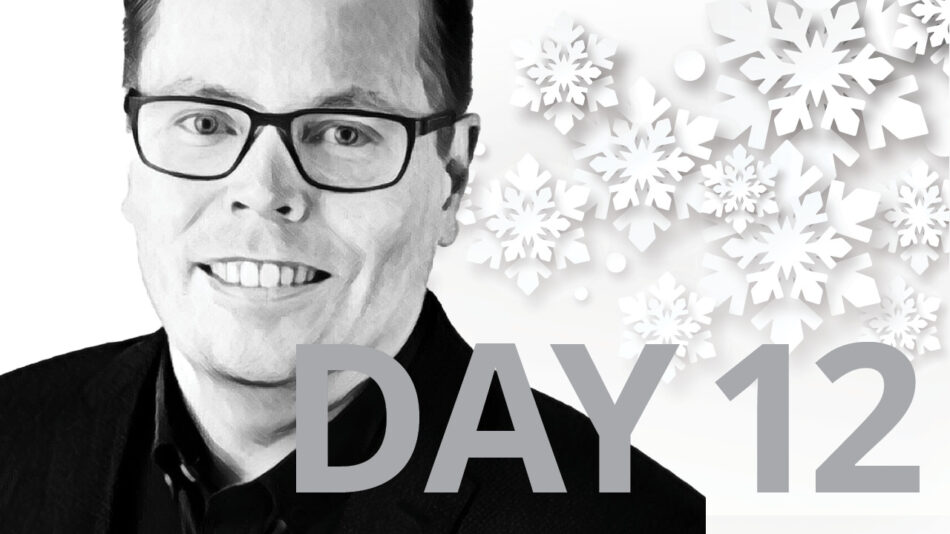 Describe how it helped you.
Describe how it helped you.
This 2022 documentary is about how Finnish swimmer Johanna Nordblad sets out to attempt the world’s longest swim under ice with one breath. She describes the greatest challenge being mental over the physical demands to break the world record.
The filming of the documentary starts prior to the pandemic, with her record attempt set for March 2020. An unusually warm winter in Finland required a last-minute search for a more northern lake with thicker ice, which put Johanna out of her comfort zone and typical rituals of her preparation. Due to the pandemic lockdowns, the swim is called off and the focus of the documentary is on her mental training to be prepared for the following winter.
During the ensuing year, Johanna deals with setback after setback, including time lost from training due to contracting Covid, the closure of all training facilities, and a new record having been set, which required her to stretch her goal.
What’s the one takeaway you’d like to share with our readers about being more resilient during challenging times?
Johanna demonstrates grit and resolve in her systematic preparation. These qualities can be described by the Finnish word sisu. There is not a word in English with a direct translation – Wikipedia defines Sisu as a Finnish concept described as stoic determination, tenacity of purpose, grit, bravery, resilience, and hardiness. This Finnish concept of resilience can serve as helpful inspiration as we navigate uncertainty and challenges.
The authors explain that forecasts are judgements based on information available at that point in time and that should always be updated when facts or new information comes to light.
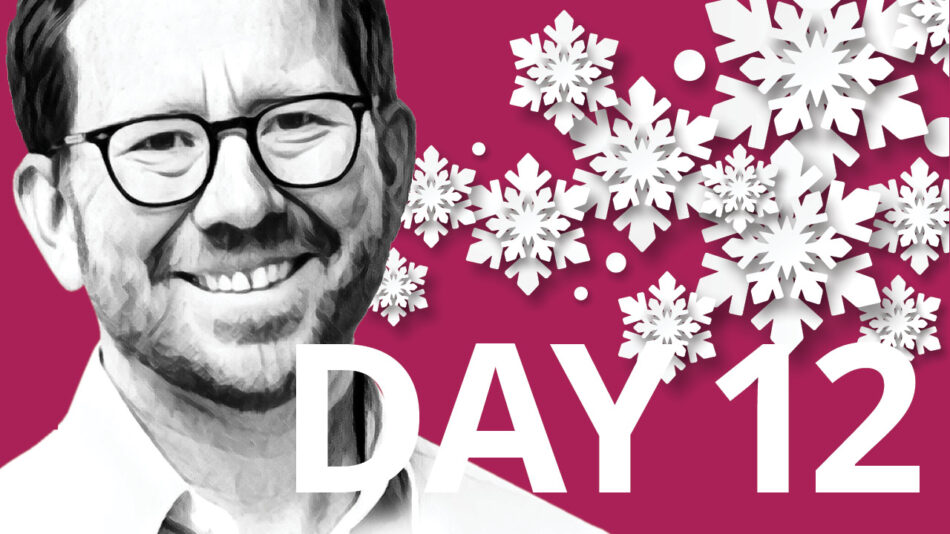 Describe how it helped you.
Describe how it helped you.
2022 has been a challenging year for small companies and the people who invest in them. These books delve into the 100-baggers throughout financial history to uncover the patterns that emerge. These authors describe how to identify “compounding machines” that can generate strong returns over the long term.
One of those opportunities is in small caps which can be an inefficient market, ripe for generating alpha. This past year has set up an environment with lots of potential 100-baggers. Distressed debt strategies are another way to generate alpha by identifying good companies with bad balance sheets. Geoff Castle and Parul Garg are taking advantage of similar types of circumstances in the Pender Corporate Bond Fund.
What’s the one takeaway you’d like to share about being more resilient during challenging times?
You have to be able to separate the signal from the noise. This year, many investors sold off their positions in quality, small cap companies on any kind of news—bad, good, even no news at all. For investors like myself, this is a once in a decade opportunity to buy some great companies at very compelling prices. By the way, we were fortunate to have Chris Mayer on one of our podcasts. You can listen to it here. Happy holidays everybody. See you in 2023!
Sign Up To Our Newsletter
Stay Connected
Join our online community and receive a monthly round up of new blog posts, commentaries, podcasts, media coverage and more.


















